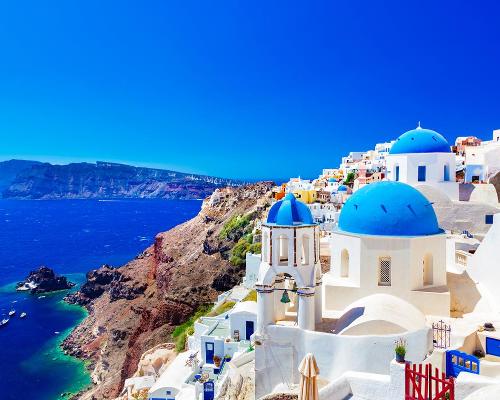Tuesday 16 April 2024 | Sign up for FREE magazines & ezines here
Education and career planning for the spa and wellness industry
You are here: news / industry news
You are here:
advice
Learn more >
benefits
Learn more >
stories
Learn more >
reports
Learn more >
resources
Learn more >
Spa & wellness industry news

Greek spa and wellness market ripe for investment, reports Global Wellness Economy
24 Jan 2023 The Greek wellness economy was under the spotlight today at the inaugural Global Wellness Economy conference, hosted in Athens, Greece.The event sought to promote and showcase the country’s potential to become a leading health and wellness tourism destination.
The programme featured a series of keynotes from international industry leaders – such as Susie Ellis, Anna Bjurstam, Marina Efraimoglou and Andrew Gibson – about the opportunities, trends and challenges facing Greece as it seeks to become an established player in the health and wellness market.
What makes Greece a wellness destination?
Constantine Vurdakis – a partner at Greek health and wellness tourism organisation Asklepieia – believes Greece’s history, climate, coastline and geographical positioning are some of its strongest USPs in the global wellness market.
With the addition of the country’s abundant thermal mineral springs (an estimated 750-800 inland), Vurdakis described Greece as in an ideal position to benefit from two of the GWI’s four wellness sectors forecast to grow exponentially between 2020-2025: Thermal/Mineral Springs (18.1 per cent) and Spas (17.2 per cent).
He says the country’s central European location also makes it easy-to-reach for European tourists (300 million of whom travelled for wellness in 2022) and a group which was projected to spend €275bn (US$299bn, £243bn) on wellness tourism in 2022.
He believes this indicates a large local channel of interest and demand for Greece to tap into.
“Europeans are willing to travel halfway across the world for wellness services, but Greece can serve them everything they need – and we’re in their backyard,” he said.
For Vurdakis, the biggest obstacle to Greece’s emergence as a leading health and wellness market is a lack of investment.
He argues that Greece represents a major investment opportunity for global wellness developers and investors because not only is it an underdeveloped market, but the wellness tourism sector is projected to grow 20.9 per cent annually by 2025 – according to the GWI.
“These two things give the Greek market a huge potential for growth and, for investors, ROI,” he said.
“Those who invest early will reap the benefits.”
He wrapped up his talk by estimating that if Greece realises its potential and becomes a major health and wellness tourist hotspot, it could result in a sizeable €13.6bn (US$14.8bn, £12bn) boost to Greece’s annual GDP.
Standing out from the crowd
Multiple speakers emphasised the importance and value of Greece carving out its own distinct wellness identity.
For example, Ellis felt the country has a major opportunity to shape itself into a wellness destination underpinned by a focus on health and nutrition through its links to the Mediterranean diet.
Andrew Gibson also agreed that focusing on Greece’s unique wellness profile and authenticity would be a profitable decision and reinforced the importance of incorporating sustainability to create a strong successful Greek wellness market.
His suggested methods include employing locals, sourcing and using local produce to tie guests’ experience to the country (perhaps by partnering with local farms for instance) and also engaging with heritage restoration projects – such as replanting indigenous plants – to not only provide guests with a rewarding experience but also to ensure any new developments improve and respect the natural environment they come into contact with.
“Greece possesses multiple strategic advantages that make it one of the most popular tourist destinations year-round,” said George Patoulis, president of event organiser Greek Health Tourism Council (Elitour) – a partner of the Greek Government.
“We have all the key elements for the recovery and maintenance of health and wellbeing – highly experienced doctors and scientific staff, state-of-the-art facilities and high-level accommodation, in combination with the unique climate and Mediterranean diet.
“The quality of the services provided combined with competitive pricing make wellness tourism in Greece an advantageous, attractive field of activity for dynamic investors from all over the world.”
Encouragingly, Patoulis revealed there are currently 48 spa and wellness destinations in Greece, but more than 700 new projects are on the way.
Additional topics covered included new wellness trends, bridging the credibility gap in wellness, state and private sector cooperation, marketing best practices, financing solutions, how to understand the health and wellness customer and more.
To check out the speaker sessions and re-watch the event, head to the Global Wellness Economy’s official website.
More industry news
Further news sources
Get your weekly ezines and FREE digital magazines – sign up here
Get the latest spa news, career opportunities and FREE digital magazines from Spa Business and Spa Business insider
© Cybertrek 2024

